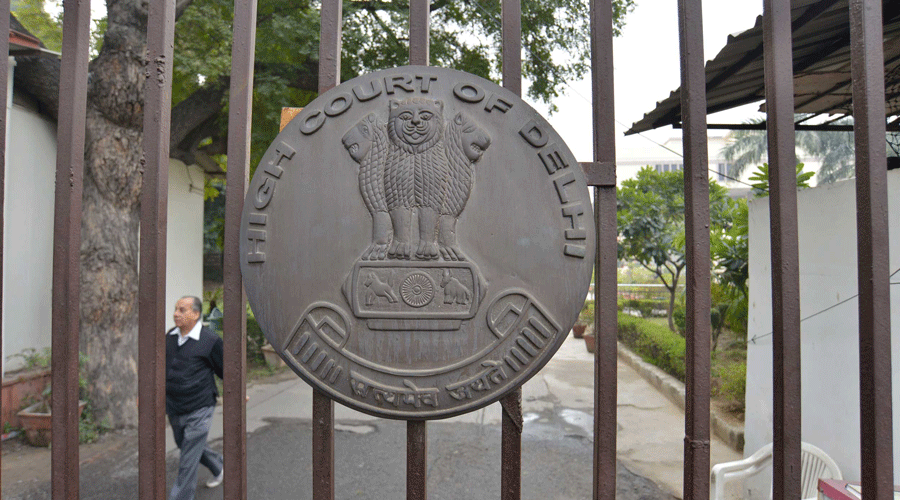Hearing petitions alleging police atrocities on students inside the Jamia Millia Islamia (JMI) University here following anti-CAA protests in December 2019, the Delhi High Court on Monday said excessive use of force cannot be justified and the authorities concerned are accountable for their conduct.
Representing some of the petitioners in the matter, senior advocate Indira Jaising argued that the force used by police in the present instance was "wholly unproportional to the alleged public good" and thus, urged the court to form a fact-finding committee comprising former judges to ascertain the "authentic" events for granting further relief.
A bench headed by Justice Siddharth Mridul was, however, told by the Delhi Police's counsel that the National Human Rights Commission (NHRC) has already prepared a report on this aspect.
The bench, also comprising Justice Talwant Singh, directed that the NHRC report be given to the petitioners within four weeks and said there is "enough jurisprudence" on the issue of excessive use of force by police in the country.
"Excessive use of force cannot be justified at all. They (police officials) are accountable. These authorities are accountable for the excessive use of force. That is why you (petitioners) are here," the court said.
Jaising said there was no last-mile implementation of the court's decisions while clarifying that the NHRC report did not put an end to the relief sought in her plea.
"Please take a look at that report," the court told the senior lawyer.
In her submissions, Jaising contended that there was "extreme form of violence" by police officials inside the Jamia campus, even after a threat to law and order was diluted when the protesting students returned to the university and the city police had no "backing of law" or permission from the vice-chancellor to enter the campus.
The police personnel trespassed and can be seen beating up students brutally and since there is no authentic fact finding in relation to the incident, the court may appoint a committee for the purpose, she said.
In another matter, the court granted time to the petitioner, represented by senior advocate Salman Khurshid, to file written submissions with respect to his prayer seeking guidelines on use of force and peaceful protests in universities.
In relation to the December 2019 incident, several petitions are pending before the court, seeking directions for setting up a special investigation team (SIT), a commission of inquiry (CoI) or a fact-finding committee, medical treatment, compensation and interim protection from arrest for the students and registration of FIRs against the erring police officers.
The petitioners are lawyers, Jamia students, residents of Okhla in south Delhi where the university is located and the imam of the Jama Masjid located opposite the Parliament House.
During the course of the hearing, the court questioned if the petitioners can directly seek action and FIRs against the allegedly erring police officials, without first making a complaint.
Senior advocate Colin Gonsalves, appearing in the matter for some of the petitioners, said the high court can decide the matter directly since it is public interest litigation (PIL) and the parties need not be "directly affected".
Another counsel argued that there is medical evidence to show the injuries sustained by the students and the court can interfere in cases of violation of fundamental rights.
The petitioners had earlier said in the present case, there was a need for an SIT, which would be independent of the police and the Centre, which by their conduct have shown that their investigation into the violence was "not independent".
They had said such a move would "reassure the public" and restore the people's faith in the system.
Some petitioners have also filed amendment applications for adding new prayers to the existing pleas, such as to set up an SIT and transfer the FIRs lodged against the students to an independent agency.
The Delhi Police has opposed the petitions and said the reliefs sought by the petitioners cannot be granted as chargesheets have been filed in connection with the violence cases and they should have sought whatever relief they wanted before the subordinate court.
It has opposed the setting up of an SIT to inquire into the alleged police atrocities as well as transferring the FIRs lodged against the students to an independent agency, and argued that a "stranger" cannot seek a judicial enquiry or investigation by a third-party agency.
The city police has said PIL petitioners cannot be allowed to choose the members of an SIT for investigating and prosecuting any alleged offence.
It has asserted that in the garb of student agitation, there was a well-planned and orchestrated attempt by some people with local support to intentionally perpetrate violence in the area and subsequently, a comprehensive investigation was carried out by the Crime Branch of the Delhi Police in several FIRs.
The matter would be heard next on May 8.
On October 19, 2022, the Supreme Court had requested the high court to "hear out early" the petitions concerning the incidents of violence during the protests against the Citizenship (Amendment) Act (CAA), while noting that "these matters are pending before the high court for some time now".
Except for the headline, this story has not been edited by The Telegraph Online staff and has been published from a syndicated feed.











